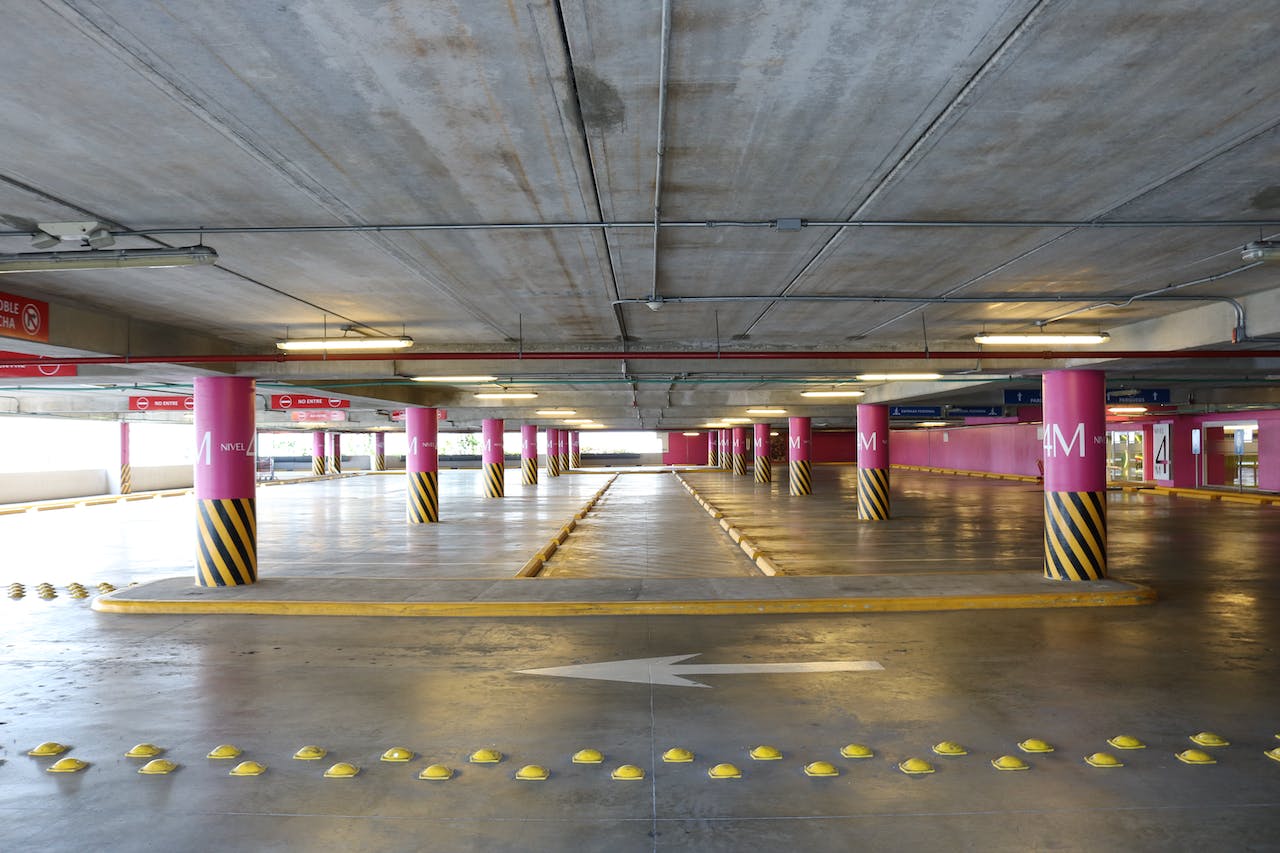Comments
- No comments found

Finding parking can be a headache, right? Too much parking actually hurts the planet, too.
If drivers spent 10% less time hunting for parking, emissions could drop by about 500,000 metric tons yearly. Cities worldwide are getting creative with smart parking technology and green spaces to cut emissions and improve neighborhoods.

Sustainable parking is an approach to the parking lot and garage design, construction, and operations to minimize environmental harm while meeting transportation needs. This means designing parking lots like a facility for a business, community space, or another area to be "greener" and more environmentally friendly.
Sustainable parking incorporates strategies like efficient lighting, stormwater management, renewable energy generation, and EV charging. However, it goes beyond infrastructure to address broader mobility and land use factors.
Key elements include rightsizing parking to actual demand rather than overbuilding supply. This prevents wasted space and materials. Shared public parking consolidates needs into fewer combined facilities.
Sustainable parking prioritizes pedestrians, cyclists, and public transit access. Incentives promote carpooling and green vehicle technology adoption. Smart systems leverage pricing, app-based guidance, and real-time occupancy data to optimize usage.
Sustainability considers the full lifespan, from alternative paving materials to accommodating future re-purposing through flexible design. Robust tree canopies, green roofs, and permeable surfaces enhance local ecosystems rather than contribute to urban heat islands.
In addition, sustainable parking facilitates dense, walkable neighborhoods while supporting clean transportation choices. It's an integrated model for responsible parking in livable communities.
Parking lots and garages take up a lot of land in cities and towns. But most parking lots are wasteful and not environmentally friendly. With climate change happening, we need sustainable parking. Sustainable parking considers people, nature, and money.
Developers must build smaller parking garages that fit more cars, use less energy, work well, and look nice. The environmental impact of parking lots goes beyond just the space they take up. All the vehicles constantly packing, moving, and idling in parking facilities contribute to several issues:
Air Pollution: Car exhaust contains harmful pollutants like nitrogen oxides and particulate matter. These contribute to smog and health conditions like asthma.
Greenhouse Gas Emissions: The incredible number of parking spaces worldwide facilitates high carbon dioxide emissions from all those vehicle trips. This worsens climate change.
Urban Heat Island Effect: Traditional parking lots are made of dark, impervious materials that absorb and retain heat. This increases temperatures in parking facilities and the surrounding areas above the temperatures of green spaces.

Parking is one of the significant parts of our everyday lives. However, it can hurt the environment with its adverse effects. Luckily, we reduce these by following these tips:
Reduce the Need for Parking: With the increasing parking costs in many areas, staying informed about local parking rates can guide transportation choices. Consider designating specific sections of parking lots exclusively for vehicles that adhere to stringent emissions standards.
Promote Public Transportation, Cycling, and Walking: Encouraging carpooling and improving public transit options like buses, trains, and trams reduces the number of vehicles on the road. Provide special parking spots close to building entrances for fuel-efficient hybrid and electric vehicles. This rewards green drivers with prime parking real estate.
Implement Parking Pricing and Demand Management Strategies: Offer lower hourly, daily, or monthly parking fees for hybrids, electrics, and carpools. Saving money is a great sustainability incentive.
Make Parking More Efficient: Consolidating, sharing between buildings, or repurposing existing lots and garages makes the most of the parking we already have.
Build and Operate Smart Parking Systems: Provide special parking spots close to building entrances for fuel-efficient hybrid and electric vehicles. This rewards green drivers with prime parking real estate.
Design Parking Facilities to Minimize Environmental Impact: Incorporate renewable energy, efficient lighting, green spaces, stormwater capture, and other environmental features into new and existing parking structures.
Encourage Sustainable Vehicles: Offer preferred parking access or discounts to carpools, vanpools, electric vehicles, hybrids, and other fuel-efficient vehicle choices.
Provide Charging Stations for Electric Vehicles: Make parking areas EV-ready by installing electric vehicle charging equipment. This makes owning a zero-emissions car much more practical.
Offer Incentives for Low-emission Vehicles: Offer discount parking rates, priority spaces, or other benefits that can encourage cleaner vehicle purchases by drivers.
Parking is one of the harmful things that hurts the planet. But there are more innovative ways we can go about it. By using new technologies and encouraging greener transportation choices, we can make parking work for people and the planet.
And that’s where sustainable parking takes the part. It just takes communities willing to put in some thought and effort to make things happen. If we work together, we can transform parking from an environmental problem into a greener solution.
Luke Fitzpatrick has been published in Forbes, Yahoo! News and Influencive. He is also a guest lecturer at the University of Sydney, lecturing in Cross-Cultural Management and the Pre-MBA Program. You can connect with him on LinkedIn.
Leave your comments
Post comment as a guest